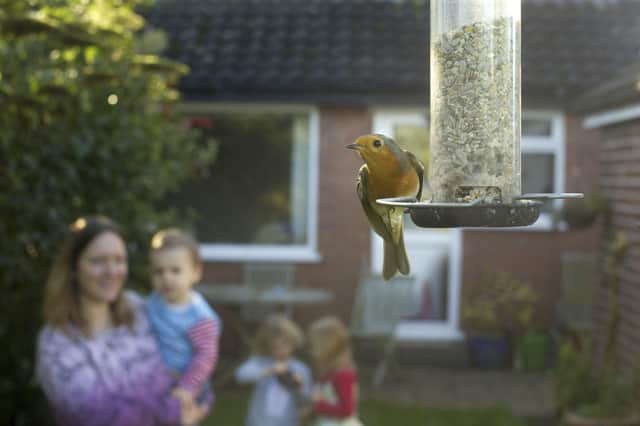Call goes out for residents, schools and farmers in Lincolnshire to take part in bird surveys
This article contains affiliate links. We may earn a small commission on items purchased through this article, but that does not affect our editorial judgement.


More than a million people took part in the RSPB’s Big Garden Birdwatch last year, counting 17 million birds; in Lincolnshire, almost 20,000 people contributed to the tally.
The survey involves people spending an hour recording the birds that land as seen from their windows, balconies or gardens. They then submit their results to the RSPB, giving the charity insight into how the UK’s wildlife is faring.
Advertisement
Hide AdAdvertisement
Hide AdLast year, the house sparrow was top of Lincolnshire’s rankings as the most commonly seen garden bird. The blackbird and starling completed the top three.
House sparrows and starlings are the UK’s most sighted birds, but their numbers have dropped dramatically since the survey began in 1979. House sparrows are down 58 per cent, while starlings are down 83 per cent.
This year’s event runs from Friday to Sunday, January 28 to 30.
Beccy Speight, the RSPB’s chief executive, said: “We were blown away by the enthusiasm with which people took part in the Birdwatch in 2021. We know that for many people, garden birds provide an important connection to the wider natural world and bring enormous joy. Over the last year, there has been a broad and much-needed realisation that nature is an important and necessary part of our lives especially for our mental health and wellbeing. But nature needs us too.
Advertisement
Hide AdAdvertisement
Hide Ad“By taking part in the Birdwatch, you are helping to build an annual snapshot of how our birdlife is doing across the UK. It is only by us understanding how our wildlife is faring that we can protect it. We know that nature is in crisis but together, we can take action to solve the problems facing nature.”
For a free Big Garden Birdwatch guide, which includes a bird identification chart, top tips, and a shop voucher for the RSPB, text BIRD to 70030 or visit www.rspb.org.uk/birdwatch
Beccy added: “Whether you saw one blackbird, 20 starlings or no birds whatsoever, it is really valuable information as it helps us build a picture of how our garden birds are faring from one year to the next.”
The parallel event RSPB Big Schools’ Birdwatch is running until February 21.
Advertisement
Hide AdAdvertisement
Hide AdIn 2021, it celebrated its 20th anniversary of connecting children with nature in their school grounds.
Since its launch, more than a million schoolchildren and teachers have taken part. Further information can be found at www.rspb.org.uk/schoolswatch
* A separate upcoming event in the same spirit is the Big Farmland Bird Count.
This has been organised by the Game & Wildlife Conservation Trust every year since 2014 to encourage farmers and gamekeepers to support farmland birds and highlight the hard work already done by many of them to help reverse species’ declines.
Advertisement
Hide AdAdvertisement
Hide AdThe count is also seen as another way of providing a snapshot of the health of the UK’s birdlife.
It involves spending 30 minutes counting birds on one spot on a farm, plus a few minutes inputting results online.
Some 2,500 counts were completed in 2021 – an increase on 2020 when 1,500 count forms came into the GWCT.
This year’s event runs between February 4 and 20.
To take part, download a count sheet from bfbc.org.uk
Guides to counting and identifying birds, biodiversity-boosting tips, and more details on taking part are also available on the website.